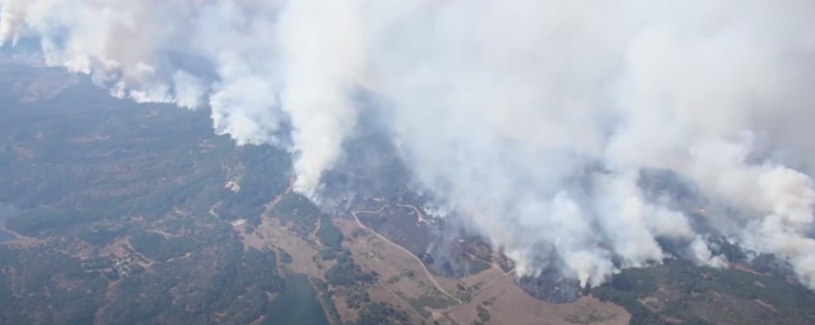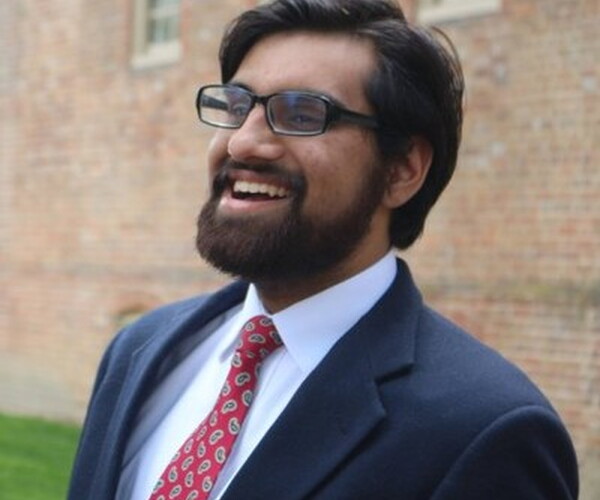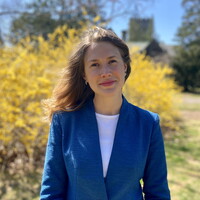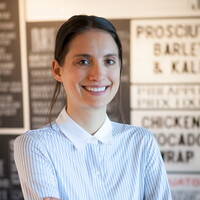Climate Innovation Grants
These grants offer seed funding for innovative solutions addressing climate change

These seed grants represent a key focus area within CBEY: climate innovation. Entrepreneurs and innovators have an increasingly critical role in helping to slow down, and maybe even reverse, the effects of climate change. This seed funding program aims to help unlock this potential and fulfill Yale’s commitment to building a more sustainable world.
Up to five seed-stage grants of $500 - $3,000 will be awarded.
Applications are now closed.
Past Winners:
Cambium Carbon: Reimagining the circular economy of wood.
Symbrosia: Developing a symbiotic system to produce an algae-based cattle feed supplement that reduces methane by 99%
Upright Oats: Oat milk and oat milk-based products
Forested Foods: Honey and other products sourced from smallholder farmers in Ethiopia
Phigitals: A web3 enabled B2B Saas solution for sustainable fashion resale
BlueGreen Materials: Manufacturing carbon-negative building materials from the ocean
META.rial: an all-in-one building material reuse platform that integrates marketplace, material assessment, and knowledge sharing
Lunasi Forest Farms: An agroforestry demonstration farm in Pennsylvania’s Endless Mountains region
Journaling for Climate Action: a tool to crowdsource information on farmers’ climate impacts and practices using WhatsApp while providing access to sub-seasonal forecasts
Past winners include
Shroom solutions: Supporting small farmers or individuals to produce 100% pure mycelium
WovX: A US-based B2B supplier of lotus silk to luxury wear manufacturers and brands
The Velocity Raptor: All weather electric motor assisted e-bikes
Reservation Energy Partnership (REP): A partnership between the private investment community and tribal nations to harness renewable energy on native lands
Gresham Community Farm: A farm-based education and community center focused on regenerative agriculture
GroundUp: A residential low-cost air conditioning solution aiming to reduce energy consumption
Faith Forest Gardens: Connecting faith communities, neighborhoods, and youth through the creation of forest gardens
Floe: Sustainable ice dam prevention technology
Click HERE to read more about the 2023 Climate Innovation Grant Recipients
Application information
Applications are now closed!
Early-stage entrepreneurial ideas are encouraged. Successful proposals should meet the following requirements:
- At least one current Yale student (undergraduate, graduate, professional or doctoral) must be involved in the idea/venture
- The concept must be innovative and propose a solution that addresses some aspect of climate change. For examples of potential avenues for climate solutions, check out Project Drawdown.
- Teams must not have previously won a Climate Innovation Grant, Sobotka Prize, or any of the prizes offered as part of Startup Yale.
Proposals will be reviewed by a panel of judges and selected on the following criteria:
- Climate impact: What is the potential to contribute environmental benefits to society, particularly its potential to address climate change?
- Viability: Will it work? Is the idea financially and operationally sustainable?
- Opportunity: Is there sufficient demand/opportunity for what’s being offered?
- Innovation: Is the idea different from what already is being attempted or has been attempted in the past?
- Team: Does the team composition include knowledge, skills, passion, energy and ability to execute?
- Use of funds: Is the proposed use of grant proceeds a sensible path to advance the idea? Is there appropriate spending in the right areas?
- Succinctness: Clarity and quality of grant application
Resources
Meet with a team member for one-on-one advice and consultation below.
For more general advice on your idea, feel free to meet with one of our CBEY Resident Fellows.
FAQs
Am I eligible?
All teams must include at least one currently enrolled Yale student, and the ideas proposed must in some way address climate change.
Who are the judges?
The Climate Change Innovation Grant program will have a set of judges that is concentrated in the intersection of the business and the environment, with particular expertise in either entrepreneurship or climate change. They will include industry experts, academics, entrepreneurs and investors.
Does my idea have to be a for-profit or not-profit?
All ideas are welcome. Your project may be a for-profit solution, non-profit, a community movement, a communications strategy, or you might not even be sure what form it will take yet.
What stage should my idea be?
Your idea can be at any stage – early ideas encouraged. The judges want to see that the $500 to $3000 will be catalytic to your testing your idea, and taking it to the next level.
Does it matter where in the process I am?
No. Regardless of whether your idea is in the Ideation, Pursuing, or Executing phase, your application will allow you to demonstrate your commitment towards thinking through the various entrepreneurial elements.
What is the difference between Ideation, Pursuing, and Executing?
Ideation indicates that you have a basic idea with very high-level thoughts around how you will provide value. Everyone starts here at some point. Pursuing indicates that you are actively implementing by developing the business model or some form of pilot or minimum viable product. People in the Executing phase have taken the next step by demonstrating a commitment of time and energy to realize something of tangible value for their efforts.
What is the timeline?
Applications will be due on October 6, 2023.
What do I get if I win?
Up to $3000 cash prize, as well as publicity through CBEY channels.
Can my idea be an international venture/project and not necessarily within the USA?
Yes, ideas can be anywhere globally as long as it focuses on mitigating and adapting to climate change.
What are my chances of winning?
We generally receive 10 to 20 applications per year, for up to five grants. The better your idea fits the selection criteria, the better your chances of receiving a grant!
To what extent are the Climate Innovation Grants orientated towards climate change?
The primary objective is to ensure that your for-profit or non-profit venture seeks to address climate change or its environmental/social impacts. It is critical that you indicate how your project will do this in order to receive the grant.






